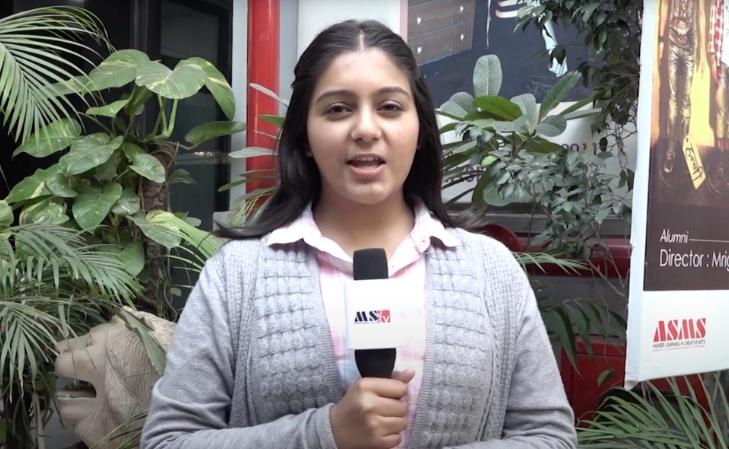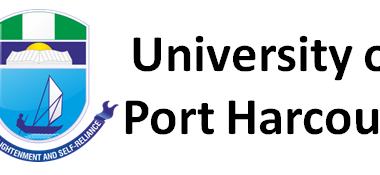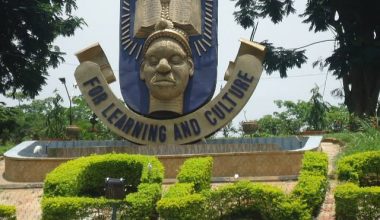Studying mass communication in Nigeria is a smart choice if you’re interested in how information is shared through media, journalism, and public relations. And, with a degree in mass communication, you are open to several exciting career paths, from news reporting and managing public relations to creating advertising campaigns and producing digital content.
Many universities in Nigeria offer mass communication courses and some of these programs focus on journalism, others on public relations, and others on digital media. Whatever your interest, there’s a program out there to help you build the skills you need for a successful career.
In this article, we will guide you through the best mass communication courses in Nigeria, the schools offering them, and program types available. By the time you get to the end of this article, you’ll understand what a mass communication degree holds for you, the career opportunities that abound, and how to get started on this career path.
Table of contents
- What is Mass Communication?
- What are the Key Areas of Study in Mass Communication?
- What Can I Become if I Study Mass Communication?
- Is Mass Communication a Good Degree?
- Is Mass Communication a Challenging Course?
- Is Mass Communication a Lucrative Course?
- Mass Communication Courses in Nigeria
- What Subjects do you need to Study Mass Communication in Nigeria?
- Mass Communication Program Type in Nigeria
- What Type of Bachelor is Mass Communication?
- What Type of Masters is Mass Communication?
- Best Universities to Study Mass Communication in Nigeria
- Private universities Offering Mass Communication in Nigeria
- Polytechnics Offering Mass Communication in Nigeria
- How Long Does it take to Complete a Mass Communication Course in Nigeria?
- FAQs on Mass Communication Courses
- Conclusion
- References
- Recommendations
What is Mass Communication?
Mass communication is that field of study that concerns itself with the dissemination of information to a large audience, all at once. This process is achieved with the mass media; technologies like the TV, radio, newspapers, magazines, and the internet. These mediums make it easy for the information to reach many people at the same time.
The various purposes mass communication serve include: entertainment, education, and political messaging. The many areas it covers also include: public relations, journalism, advertising, media studies and communication theories; thereby, providing a balanced understanding of how information is distributed and received.
What are the Key Areas of Study in Mass Communication?
In a mass communication course, you’ll learn a variety of subjects that prepare you for career opportunities in different media fields.
Here’s a closer look at the key areas of study:
- Journalism: Writing, reporting, and editing news stories for print and online media.
- Public Relations: Managing the public image of companies and individuals.
- Advertising: Creating and placing ads to promote products or services.
- Broadcasting: Producing and presenting content for TV and radio.
- Digital Media: Using online platforms to connect with audiences.
See: The Best International Relations and Affairs Colleges 2024
Core Courses
- Media Ethics and Law: This is where you learn about the legal and ethical rules in media.
- Communication Theories: Here, you gain a deeper understanding of how media affects society.
- News Writing and Reporting: Your skills of mastering the basics of writing and reporting news begins here.
- Public Relations Strategies: Here’s where you develop your skills to manage communication between organizations and the public effectively.
- Advertising Principles: This is the grassroot of how to create effective ad campaigns.
Specialized Courses
- Broadcast Journalism: This very course teaches you the techniques for reporting and producing TV and radio content.
- Digital Media Production: Walks you through the threads of how to create content for digital platforms, including social media.
- Film Studies: Analyzes films as a form of communication.
- Media Management: Deals with learning how to run media organizations and projects.
What Can I Become if I Study Mass Communication?
A degree in mass communication opens you up to many career opportunities. Here are possible job roles you can take up as a mass communicator:
- Journalist: Write and report news stories for newspapers, TV, radio, and online platforms. Journalists investigate events, interview people, and share information with the public.
- Public Relations Specialist: Manage how organizations are seen by the public, develop communication plans, and handle media interactions.
- Advertising Executive: Create and oversee advertising campaigns for products and services, working with clients to achieve their marketing goals.
- Broadcast Presenter: Host news, sports, or entertainment shows on TV or radio, engaging with the audience and delivering content.
- Digital Content Creator: Produce and manage content for digital platforms like blogs, social media, and websites. This involves writing, video production, and digital marketing.
- Media Planner: Plan advertising campaigns, choosing the best media platforms to reach the intended audience.
- Communication Consultant: Advise organizations on how to communicate effectively, helping them improve both internal and external communication.
Also, read: Which Course is Best for Art Students in Nigeria? Top 20 Art Courses
Job Descriptions of a Mass Communicator
As a mass communicator, your role involves gathering information from various sources to create accurate and compelling content. This includes interviewing people, conducting surveys, and analyzing data to ensure the information you share is informative and engaging.
You’ll also create content across different media platforms. This could range from writing news articles and press releases to developing social media posts and producing videos. Your goal is to communicate effectively with your audience and deliver content that resonates with them.
Beyond content creation, your job includes engaging with your audience. This means understanding who your audience is and using analytics to gauge their response. Adjusting your strategies based on audience feedback ensures that your messages are effective and meaningful.
Besides these tasks, you’ll oversee media projects, manage budgets, and collaborate with team members to successfully execute campaigns. It’s crucial to adhere to ethical standards and legal guidelines in all your work, ensuring that your content is accurate, respectful of copyrights, and free from defamatory statements.
Is Mass Communication a Good Degree?
A degree in mass communication offers incredible versatility, allowing graduates to explore different careers and switch between them as their interests evolve.
The field of mass communication is constantly growing because of technological advancements. With new media platforms emerging and existing ones evolving, there’s a rising demand for skilled professionals who can adapt to these changes. This dynamic growth ensures that mass communication graduates remain relevant in the labour market.
Professionals in mass communication hold significant sway in society. Whether they’re reporting news that shapes public opinion or creating PR campaigns that spark social change, their work deeply influences how information is shared and understood by the public.
Studying mass communication also helps develop crucial skills that are valuable across many fields. Students improve their critical thinking, research, writing, and communication skills, which are essential in various professions beyond traditional media roles.
Is Mass Communication a Challenging Course?
There could be a bias answering this as there’s variation in people’s strengths and weaknesses. However, here’s a few things to think about to arrive at the answer you’re looking for.
Mass communication covers a wide range of skills; writing, research, technical know-how, and creativity all play a part. If these areas are your strengths, you might find the course quite manageable. However, if some of these skills are newer to you, you may need to put in extra effort to excel.
Hands-on experience is a big part of many mass communication programs. This means you’ll likely take part in internships, projects, and practical training. While this can be demanding, it’s also incredibly valuable. It prepares you well for a well-rounded career in the media industry.
On the academic side, topics on communication theories and media regulations can be difficult, so it is important to dedicate your time to understanding them fully. Critical thinking will be essential as you go through this phase.
Managing your time effectively is paramount because you’ll juggle coursework, hands-on projects, and possibly internships. Staying organized and proactive will help you stay on top of your responsibilities and make the most of your learning experience.
Related Article: 20+ Best Science Courses to Study in Nigeria
Is Mass Communication a Lucrative Course?
Studying mass communication can lead to well-paying jobs and room for growth in your career. How much you earn depends on where you work, how much experience you have, and the specific job you choose.
When you start out in fields like journalism, public relations, or advertising, salaries are usually decent. As you gain experience and build your reputation, you can earn more.
Experienced professionals in mass communication, especially those in senior roles or specialized areas, often make good money. For instance, senior journalists, PR managers, and advertising directors can earn high salaries.
Many people in mass communication also freelance, working for different clients. This can boost your income and give you flexibility in how you work.
A closer look at the annual salary expectations of a mass communicator according to Indeed is:
- Corporate Communications Manager earns between ₦2,000,000 – ₦2,500,000
- Content Strategist earns between ₦1,620,000 – ₦3,348,000
- Broadcast News Producer earns between ₦1,872,000 – ₦3,840,000
- Social Media Manager earns between ₦1,800,000 – ₦2,000,000
- Media Planner earns around ₦1,980,000
- Editor earns around ₦1,235,004
- Journalist earns between ₦2,003,100 – ₦4,056,384
Mass Communication Courses in Nigeria
The following are mass communication courses you can find in Nigerian schools
- Introduction to Mass communication
- English for Mass Communication
- History of Nigerian Politics
- Introduction to Photojournalism
- News gathering
- Mass Media and Society
- Introduction to Sociology
- Advertising
- Public Relations
- Corporate Communication
- Media Law and Ethics
- Media Development
- Introduction to Web Publishing
- Development Communication
- Information and Communications Technology
- Documentary Film Production
- Communication Research
- Photography
- Critical Writing and Reviewing
- Film Theory and Aesthetics
What Subjects do you need to Study Mass Communication in Nigeria?
For you to pursue a degree in mass communication, there is the need for you to have a thorough knowledge of the following subjects during your secondary school education.
- English Language: Having a strong grasp of English will help make your journey through mass communication easy as it’s the main language used for teaching and communication in the media field.
- Literature in English: Helps your skills in critical thinking, understanding, and writing, which are vital for success in mass communication.
- Government or History Knowledge of historical and governmental contexts is helpful for reporting and analyzing news and current affairs.
- Any Other Social Science Subject Subjects like economics, geography, or sociology provide additional insights and analytical skills that are beneficial for studying mass communication.
Mass Communication Program Type in Nigeria
Nigeria offers a variety of mass communication courses across several universities and institutions. Here are some of the top programs:
- Bachelor of Arts in Mass Communication: Most Nigerian universities offer this undergraduate program, covering everything from journalism and public relations to advertising and broadcasting.
- Diploma in Mass Communication: This shorter program gives a solid foundation in mass communication. It’s great for those wanting a quick entry into the field or as a stepping stone to a bachelor’s degree.
- Master’s in Mass Communication: This postgraduate program dives deeper into advanced topics and research in mass communication. It’s perfect for those aiming to specialize or pursue academic careers.
- Professional Certifications: Several institutions provide focused courses in areas like digital marketing, public relations, and media management. These certifications are shorter and targeted for specific career paths.
What Type of Bachelor is Mass Communication?
In Nigeria, you can either bag a B.A (Bachelor of Arts) or a B.Sc (Bachelor of Science) in Mass Communication.
This is totally dependent on the school and the program focus. It is, therefore, important to understudy the school you intend to attend and what program type and certification they give at the end of their programs.
What Type of Masters is Mass Communication?
The M.A. in Mass Communication tilts toward the theories, cultures, and practical sides of communication. It’s great for those keen on media studies, journalism, public relations, and related fields.
While, the M.Sc. in Mass Communication focuses more on the technical aspects and research. It covers areas like media technology, research methods in communication, and data analysis. This option suits those interested in the analytical and technical sides of mass communication.
Best Universities to Study Mass Communication in Nigeria
The best universities to study mass communication in Nigeria include:
1. The University of Nigeria Nsukka (UNN)
The experience that mass communication in UNN offers is wholesome and all-encompassing. The academic program meets the standards set by the National Universities Commission (NUC) and the school has enhanced the curriculum by introducing innovative courses in print and electronic journalism, marketing communications, communication philosophy, the history and evolution of mass media, and photojournalism.
The department has a strong tradition of setting the pace, which has consistently propelled it to great achievements in mass communication.
2. University of Lagos (UNILAG)
The Mass Communication program at the University of Lagos (UNILAG) is well-known for its strong combination of theory and practical training. UNILAG’s Mass Communication department is led by experienced faculty members who are experts in their fields, offering students valuable mentorship and support.
The department is equipped with modern facilities that create a hands-on learning environment, allowing students to develop their skills through projects and internships.
Outside of classes, UNILAG provides a lively campus atmosphere that enhances the overall student experience. Students actively participate in clubs, extracurricular activities, and networking events, all of which contribute to their professional growth and personal development.
3. Ahmadu Bello University (ABU)
Mass communication at Ahmadu Bello University (ABU) offers a robust academic program that covers various aspects of mass communication, including journalism, public relations, advertising, and digital media.
With a focus on both theoretical foundations and practical skills, ABU’s mass communication curriculum prepares students for diverse career paths in the media industry. Graduates from ABU’s mass communication program are well sought after.
Private universities Offering Mass Communication in Nigeria
Here’s a list of the best private universities that offer mass communication
- Covenant University
- Babcock University
- Pan-Atlantic University
- BOWEN University
- Redeemer’s University
Polytechnics Offering Mass Communication in Nigeria
The best Nigerian Polytechnics offering mass communication include:
- Federal Polytechnic, Nekede
- Federal Polytechnic, Oko
- Yaba College of Technology (YABATECH)
- Moshood Abiola Polytechnic (MAPOLY)
- Federal Polytechnic, Bida
- Rufus Giwa Polytechnic
How Long Does it take to Complete a Mass Communication Course in Nigeria?
A bachelor’s degree in mass communication usually takes four years to complete, with the program divided into eight semesters.
For those interested in a shorter program, diploma courses in mass communication typically last two to three years, depending on the institution offering them.
If you’re considering further studies, a master’s degree in mass communication takes one to two years. The exact duration depends on whether you study full-time or part-time.
See Also: The 10 Easiest University Degrees in the UK | 2024 Rankings
FAQs on Mass Communication Courses
The four JAMB subjects for mass communication are English Language, Literature-in-English, Government, and one other subject, which can be Economics or CRS/IRS.
Key skills for a career in mass communication include strong writing and communication skills, creativity, critical thinking, research abilities, digital literacy, social media proficiency, and the ability to work under tight deadlines.
Yes, some universities and institutions in Nigeria offer online mass communication programs. These programs provide flexibility for students who may not attend classes in person and cover the same curriculum as traditional programs.
Yes, there are scholarships available for mass communication students in Nigeria. Many universities and organizations offer scholarships based on academic performance, financial need, or specific criteria related to mass communication studies.
Conclusion
Mass communication is an exciting and flexible field with many career options. If you want to major in journalism, public relations, advertising, or digital media, a mass communication degree can give you the skills and knowledge you need to succeed.
Picking the right course and school can lead to a fun and fulfilling career in the media industry. If you’re eager to influence how people get and understand information, think about taking one of the best mass communication courses in Nigeria.
References
- Britannica.com – Mass Communication
- Socialsciences.unizik.edu.ng – Mass Communication Course Descriptions
- Fss.nou.edu.ng – Mass Communication Courses






